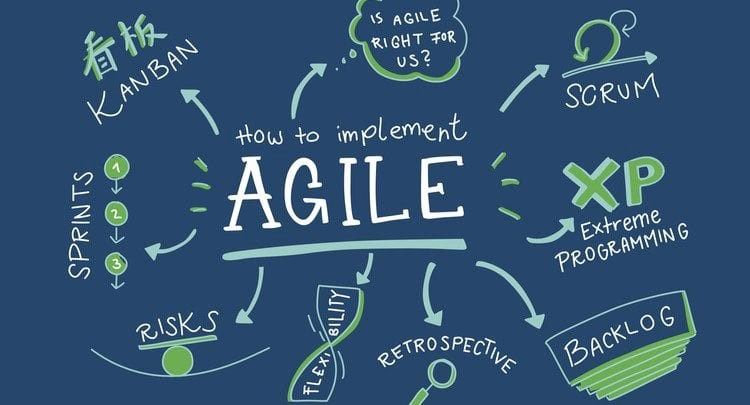
What Are the Career Opportunities Available in Agile?
Agile is a project management and product development approach that emphasizes flexibility and collaboration. It values people, their interactions, and delivering a minimum viable product frequently. The Agile methodology is often used in software development but can also be applied to other projects. This methodology is based on the Agile Manifesto, which outlines twelve principles for delivering projects in an adaptive and iterative way.

Features of Agile
Agile facilitates iterative and incremental development and it delivers projects in small, frequent iterations with regular check-ins. Furthermore, it ensures emphasis on collaboration between cross-functional teams and stakeholders to ensure everyone is aligned. Agile involves the customer in the development process to ensure that the end product meets their needs and expectations. It has various features that help Agile teams deliver projects faster and with higher quality. Agile promotes a culture of transparency, teamwork, and continuous improvement. To further know about its features, one can visit Agile Certification Training. Apart from these, below are some of the significant features of Agile.
• Flexibility: Agile allows for changes in the project requirements and priorities, as well as adaptation to new information or feedback from stakeholders.
• Working software as the primary measure of progress: Agile values working and functional software over extensive documentation or planning.
• Continuous improvement: Agile emphasizes continuous improvement, reflection, and adaptation throughout the development process.
• Self-organizing teams: Agile teams are empowered to make decisions and take ownership of their work.
• Face-to-face communication: Agile prioritizes face-to-face communication between team members over other forms of communication.
Why Should You Use Agile
Agile ensures faster delivery and allows teams to deliver working software in small, and frequent iterations. This practice enables teams to get feedback and make improvements more quickly. Furthermore, it increases collaboration between cross-functional teams and stakeholders, promoting better alignment and teamwork. Apart from these, given below are several reasons why organizations use Agile:
• Better alignment with customer needs: Agile involves customers in the development process, allowing teams to better understand and meet their needs and expectations.
• Increased flexibility: Agile allows for changes in project requirements and priorities, making it easier for organizations to adapt to new information or feedback.
• Improved project visibility: Agile provides regular check-ins and progress updates, allowing teams and stakeholders to see the progress of the project and make informed decisions.
• Higher quality: Agile emphasizes continuous improvement, testing, and feedback, leading to a higher-quality end product. It values self-organizing teams, promoting a sense of ownership and pride in the work being done.
Career Opportunities in Agile
Agile careers can be found in a variety of industries, including software development, IT, finance, healthcare, and government, among others. Pursuing a career in Agile can lead to increased job opportunities and high demand for skilled professionals. Many institutes provide Agile Training in Noida and one can enroll in them to start a career in Agile. There are several career opportunities in the field of Agile, including:
• Agile Coach: An Agile Coach works with organizations to help them adopt and effectively implement Agile practices.
• Scrum Master: A Scrum Master is responsible for facilitating the Scrum process and ensuring that the team follows Agile principles.
• Project Manager: A Project Manager with knowledge of Agile practices can lead Agile projects and help teams deliver high-quality products efficiently.
• Product Owner: A Product Owner is responsible for defining and prioritizing the product backlog, working with the development team to deliver a successful product.
• Agile Trainer: An Agile Trainer provides training and education on Agile practices, helping organizations and individuals learn and adopt Agile methodologies.
• Agile Developer: An Agile Developer is a software developer who works on Agile projects, following Agile principles and practices to deliver working software in short iterations.
• Agile Tester: An Agile Tester works in an Agile development environment, ensuring the quality of the software and collaborating with the development team to deliver high-quality products.
Conclusion
In conclusion, Agile is a flexible and collaborative approach to project management and product development that prioritizes people, their interactions, and delivering working software frequently. Its key features, including iterative development, customer involvement, and continuous improvement, help teams deliver projects faster and with higher quality. Additionally, there are many career opportunities in Agile, including roles such as Agile Coach, Scrum Master, and Agile Developer. Whether you are an organization looking to improve your delivery process or an individual seeking a rewarding career, Agile offers a path toward success and continuous improvement.
Appreciate the creator